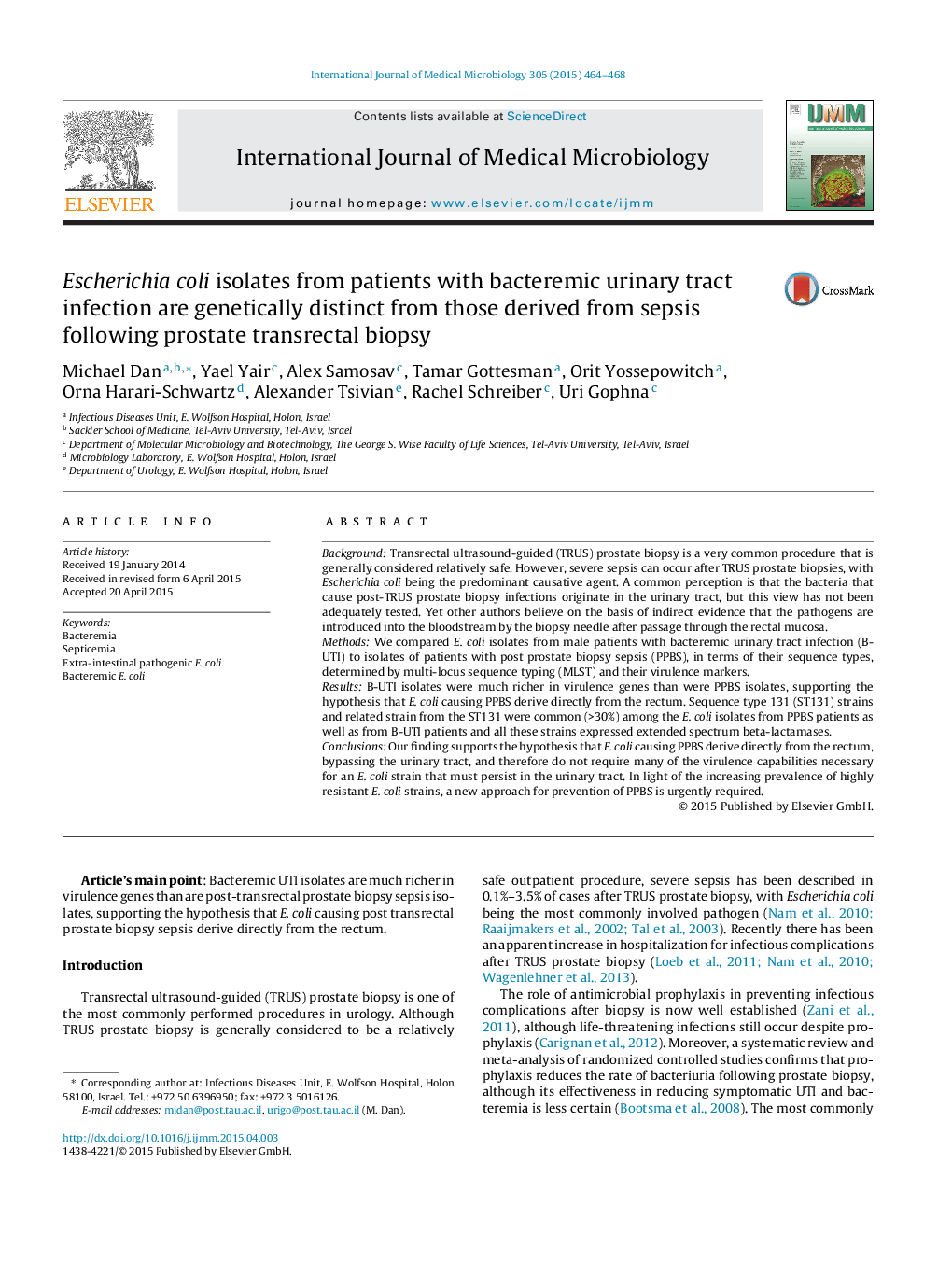| کد مقاله | کد نشریه | سال انتشار | مقاله انگلیسی | نسخه تمام متن |
|---|---|---|---|---|
| 2054114 | 1543687 | 2015 | 5 صفحه PDF | دانلود رایگان |
BackgroundTransrectal ultrasound-guided (TRUS) prostate biopsy is a very common procedure that is generally considered relatively safe. However, severe sepsis can occur after TRUS prostate biopsies, with Escherichia coli being the predominant causative agent. A common perception is that the bacteria that cause post-TRUS prostate biopsy infections originate in the urinary tract, but this view has not been adequately tested. Yet other authors believe on the basis of indirect evidence that the pathogens are introduced into the bloodstream by the biopsy needle after passage through the rectal mucosa.MethodsWe compared E. coli isolates from male patients with bacteremic urinary tract infection (B-UTI) to isolates of patients with post prostate biopsy sepsis (PPBS), in terms of their sequence types, determined by multi-locus sequence typing (MLST) and their virulence markers.ResultsB-UTI isolates were much richer in virulence genes than were PPBS isolates, supporting the hypothesis that E. coli causing PPBS derive directly from the rectum. Sequence type 131 (ST131) strains and related strain from the ST131 were common (>30%) among the E. coli isolates from PPBS patients as well as from B-UTI patients and all these strains expressed extended spectrum beta-lactamases.ConclusionsOur finding supports the hypothesis that E. coli causing PPBS derive directly from the rectum, bypassing the urinary tract, and therefore do not require many of the virulence capabilities necessary for an E. coli strain that must persist in the urinary tract. In light of the increasing prevalence of highly resistant E. coli strains, a new approach for prevention of PPBS is urgently required.
Journal: International Journal of Medical Microbiology - Volume 305, Issues 4–5, June–August 2015, Pages 464–468
